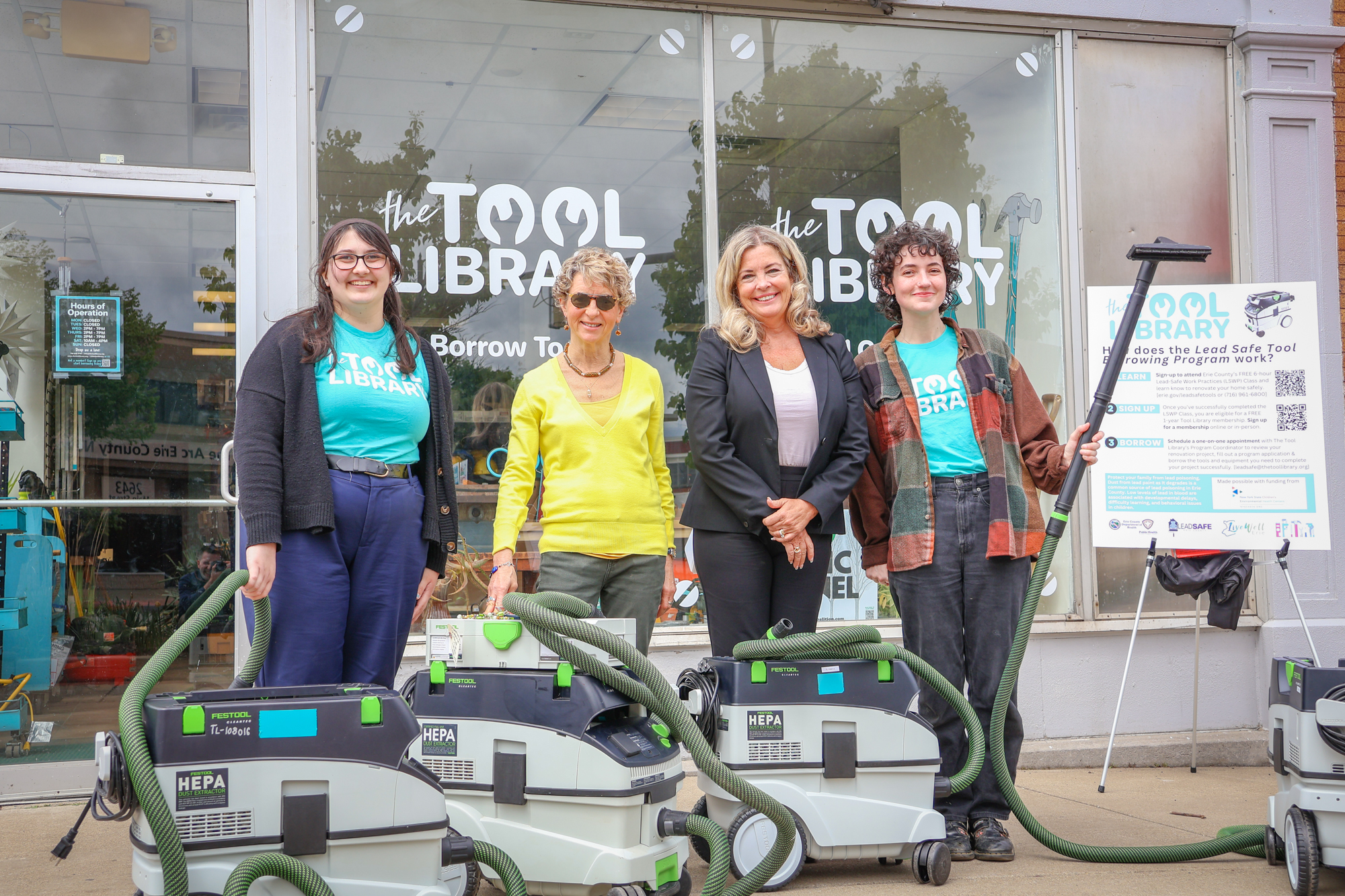Combining the education of Lead Safe Work Practices Class with the access to HEPA vacuum and other tools for construction and renovation
ERIE COUNTY, NY— The season of spring cleaning and home improvement projects is upon us, and the Erie County Department of Health (ECDOH) is partnering with the Tool Library to launch the Lead Safe Tool Borrowing Program to ensure that residents can complete home repairs and renovations as safely and inexpensively as possible.
Erie County Deputy County Executive Lisa Chimera and Commissioner of Health Dr. Gale Burstein joined Tool Library Executive Director Darren Cotton for an announcement on Friday, May 10 at the Tool Library’s Main Street location in Buffalo.
“The Tool Library will be teaming up with Erie County Department of Health to put tools into the hands of homeowners so that they can affordably make their homes safe spaces for themselves and their families,” said Cotton. “By sharing more of the tools and resources our neighbors need, we can begin to tackle pressing public health issues like lead poisoning from the ground up.”
By participating in this joint program and taking the ECDOH Lead Safe Work Practices class, participants will be able to get a free one-year membership to the Tool Library and be eligible to borrow new lead safe tools such as a HEPA vacuum. These vacuums can cost over $500, but they are an important part of safe renovations for homes that have lead paint present.
The Western New York Children’s Environmental Health Center is providing the funding to support this initial pilot program with the purchase of a HEPA vacuum and support for a program coordinator, who will work closely with people who enroll in the ECDOH training as they access Tool Library resources. “We are excited to support this collaboration because it empowers families to safely work on repairs and renovations in older homes that likely contain lead,” said WNY Children’s Environmental Health Center Director Sarah Ventre, MD. “Parents often don’t know if there is lead in their home until a child tests high for lead during their routine screening. More needs to be done to stop lead poisoning before it happens, and this program is a great step towards that shift.”
Lead is a poison, even in very small amounts, where it can cause learning and developmental delays, and behavior problems. At higher levels it can cause seizures, coma and even death. Young children are especially at risk.
“Sadly, every year we have multiple cases where a child is inadvertently exposed to lead during a home renovation project,” said Dr. Burstein. “We’re very excited to be teaming up with the Tool Library so that homeowners and families in pre-1978 housing can learn how to work safely around lead paint from us and then, thanks to the Tool Library, borrow the tools needed for a safe renovation.”
“It’s a great combination of education and access to specialized equipment that we hope parents and property owners will use often. This program is another tactic to safeguard children from lead exposure during a home renovation,” said Melanie Desiderio, who oversees the Healthy Housing & Lead Poisoning Prevention Section of the ECDOH Division of Environmental Health.
Much of the housing stock in Erie County, especially in the city of Buffalo, was built prior to 1978 before lead paint was banned. The most common cause of lead poisoning is dust and chips from lead paint as it degrades. Even today, deteriorating lead-based paint in homes can lead to high and unsafe amounts of lead in household dust.
Check to see when your home was built by following this link to the Erie County pre-1978 leadsearch database. If your house was built before 1978, then you should assume that your home has lead paint on surfaces and take steps to protect your household and reduce the risk of lead poisoning. Lead dust is the most common way children are poisoned by lead.
Together ECDOH and the Tool Library are working to provide the knowledge and tools that families need to protect themselves from lead exposure and maintain affordable, clean, and safe housing.
The Tool Library is nonprofit tool-lending library located at 2626 Main St. in Buffalo’s University Heights neighborhood. Membership in the library is open to all residents of Buffalo and its surrounding suburbs. Community members who would otherwise have to buy expensive tools that may only be used once can instead maintain and fix-up their homes and gardens for a small annual membership fee. Items available to be lent range from small hand tools such as hammers to power drills and circular saws. The Tool Library’s collection now includes HEPA vacuums.
The ECDOH Lead Safe Work Practices Classes are free sessions where people can learn how to work safely around lead when remodeling, repairing, or painting a property.
This class is for:
- Any homeowner who lives in pre-1978 housing who performs repairs, renovations or remodeling themselves.
- Any homeowner who lives in pre-1978 housing and is planning to hire a contractor can learn about the federal requirements for contractors to perform work in a lead safe manner.
- Any occupant who lives in pre-1978 housing can learn about the requirements for property managers and landlords to perform work on their rental units in a lead safe manner.
You can participate in the Lead Safe Tool Borrowing Program by following these three steps:
- LEARN
- Sign up to attend an Erie County Department of Health’s FREE 6-hour Lead-Safe Work Practices Class and learn how to renovate your home safely.
- SIGN-UP
- Once you have successfully completed the Lead-Safe Work Practices Class you are now eligible for a FREE 1-year membership to the Tool Library. Sign up for membership online or in-person.
- BORROW
- Schedule a one-on-one appointment with the Tool Library program Coordinator by emailing leadsafe@thetoollibrary.org to review your renovation project, fill out a program application and borrow the tools and equipment you will need to successfully complete your project.
Additional Resources:

